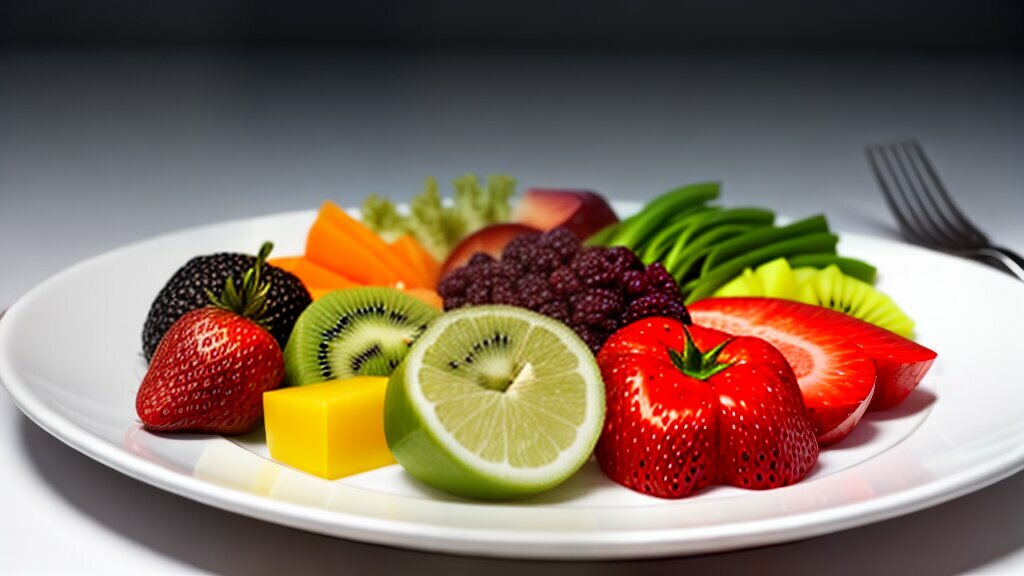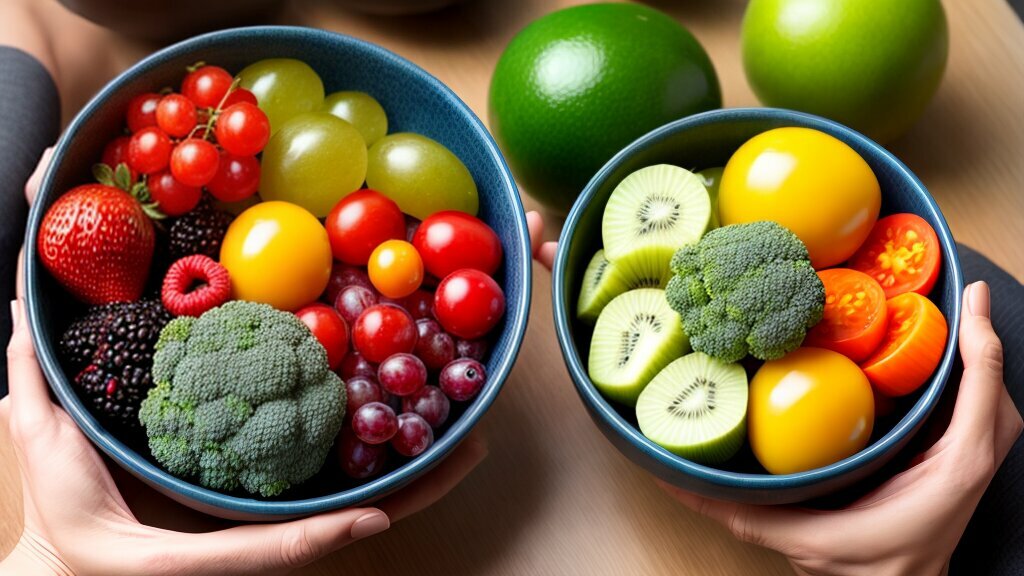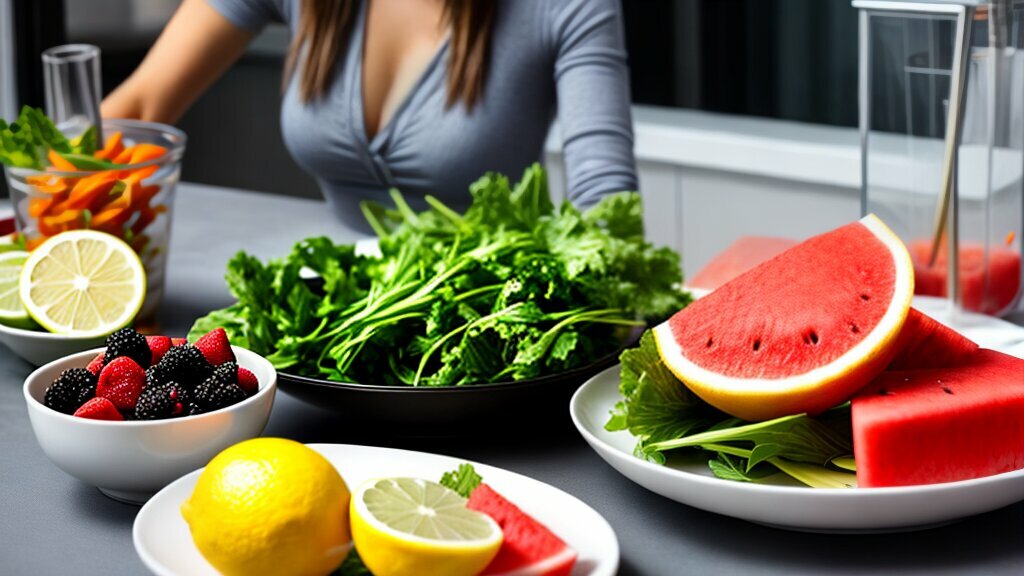As an expecting mother, it is important to prioritize your own health and the health of your growing baby. Healthy eating during pregnancy plays a crucial role in achieving optimal nutrition for both mother and child. It can also help to prevent complications during pregnancy and ensure a healthy pregnancy.
A well-balanced prenatal diet in Australia should include a variety of foods from each food group, including whole grains, fruits and vegetables, lean proteins, and healthy fats. It is important to consume enough calories to support the growth of your baby, but not to overdo it and gain too much weight. Your healthcare provider can provide guidance on how many calories are right for you.
Key Takeaways:
- Healthy eating during pregnancy is important for both mother and baby.
- A well-balanced prenatal diet in Australia should include a variety of foods from each food group.
- Consuming enough calories to support the growth of your baby is important, but not overeating.
Designing a Pregnancy Meal Plan: Essential Tips and Guidelines
Creating a healthy and well-balanced prenatal diet is crucial for the overall health and development of both you and your baby. But with so much information out there, it can be overwhelming to know where to start. We’ve compiled some essential tips and guidelines to help you design a pregnancy meal plan that meets your nutritional needs.
1. Prioritize Nutrient-Dense Foods
During pregnancy, it’s important to eat foods that provide a wide range of nutrients, including protein, complex carbohydrates, healthy fats, vitamins, and minerals. Prioritize nutrient-dense foods, such as leafy greens, whole grains, lean proteins, and healthy fats like avocado and nuts. These foods will not only provide you with the nutrients you need but also help you feel fuller for longer.
2. Incorporate Pregnancy Superfoods
Pregnancy superfoods are foods that are particularly rich in specific nutrients that are important during pregnancy. These include foods like salmon (rich in omega-3 fatty acids), yogurt (a good source of calcium and protein), and spinach (high in iron). By incorporating these superfoods into your diet, you can ensure that you are getting the nutrients you need in a tasty and enjoyable way.

3. Plan Your Meals Ahead of Time
Planning your meals ahead of time can be incredibly helpful in ensuring that you are eating a well-balanced and nutrient-dense diet. Take some time each week to plan out your meals and snacks, and make a grocery list to help you stay on track. Meal prepping can also be a great way to save time and ensure that you always have healthy options on hand.
4. Listen to Your Body
Your body will give you cues as to what it needs during pregnancy. If you’re feeling particularly hungry or craving a certain food, it might be a sign that your body needs more of a specific nutrient. Alternatively, if you’re feeling bloated or uncomfortable after eating a certain food, it might be a sign that you need to adjust your diet. Pay attention to your body’s signals, and adjust your meal plan accordingly.
5. Don’t Forget About Hydration
Staying hydrated is crucial during pregnancy. Aim to drink at least 2 litres of water each day, and consider incorporating other hydrating options like herbal tea or coconut water. If you’re struggling to drink enough water, try adding lemon or cucumber slices to help improve the taste.
By following these essential tips and guidelines, you can design a pregnancy meal plan that meets your nutritional needs and supports the health and development of your baby. Don’t be afraid to experiment with new recipes and flavours, and remember that a well-balanced diet can be delicious and enjoyable.
Pregnancy Superfoods: Nutrient Powerhouses for Gestational Health
During pregnancy, it’s important to consume a well-balanced diet that provides all the necessary nutrients for the growth and development of the baby. Incorporating pregnancy superfoods into your diet can ensure you’re getting enough of the essential vitamins and minerals needed during this time.
Some of the top pregnancy superfoods to consider include:
| Superfood | Nutrient Benefits |
|---|---|
| Salmon | Provides omega-3 fatty acids for brain development and DHA for eye health. |
| Eggs | High in protein, choline and essential amino acids, which aids in the development of the baby’s brain. |
| Green Leafy Vegetables | Great source of folate which can help prevent birth defects. |
| Sweet Potatoes | High in beta-carotene which is important for the development of the baby’s skin, bones and eyes. |
Including these superfoods in your meals can help ensure that you and your baby are getting the necessary vitamins and minerals needed for a healthy pregnancy. However, it’s important to also ensure you are consuming a well-rounded and balanced diet, including a variety of fruits, vegetables, grains, and protein sources.
Note: Always consult with your healthcare provider or a registered dietitian to ensure you’re meeting your individual nutrition needs during pregnancy.

Ensuring Adequate Nutrient Intake: Vitamin Supplementation and Foods to Focus On
Pregnancy is a critical time for ensuring adequate nutrient intake to support fetal development and a healthy pregnancy. In addition to a well-balanced diet, vitamin supplementation can also be beneficial in meeting nutrient needs.
One important vitamin for pregnant women to focus on is folic acid, which plays a vital role in preventing birth defects of the brain and spine. It is recommended that pregnant women take a supplement of 400 to 500 micrograms of folic acid per day, in addition to consuming folate-rich foods such as leafy green vegetables, citrus fruits, and fortified cereals.
Vitamin D is also crucial during pregnancy, as it aids in calcium absorption and bone growth, both for the mother and the developing baby. It is recommended that pregnant women take a supplement of 600 to 800 IU of vitamin D per day, in addition to consuming vitamin D-rich foods such as fatty fish, fortified milk, and exposure to sunlight.
In addition to vitamin supplementation, there are many nutrient-rich foods that pregnant women should focus on. Iron-rich foods such as lean meat, poultry, fish, beans, and fortified cereals can help prevent anemia and support fetal growth. Calcium-rich foods such as dairy products, tofu, and dark leafy greens can help support bone growth and development. Omega-3 fatty acids found in fatty fish, such as salmon and trout, can support brain and nervous system development in the fetus.
As with all dietary changes during pregnancy, it is important to consult with a healthcare professional to determine the appropriate nutrient needs and supplementation for your individual situation.

Incorporating vitamin supplementation and nutrient-dense foods into your diet can help support a healthy pregnancy and fetal development. Don’t forget to consult with your healthcare provider to ensure that you are meeting your individual nutrient needs.
Conclusion
Congratulations on taking the first step towards ensuring a healthy pregnancy through proper nutrition. By following the guidelines outlined in this article, you can design a well-balanced pregnancy meal plan that provides you and your growing baby with the essential vitamins and nutrients you both need.
Remember to incorporate a variety of pregnancy superfoods into your diet, such as leafy greens, berries, nuts, and whole grains. Additionally, don’t hesitate to supplement your diet with vitamins and minerals as recommended by your healthcare provider.
By prioritizing healthy eating during pregnancy, you are setting the foundation for a lifetime of good health and well-being for both you and your baby. Best of luck on your journey towards motherhood!
FAQ
Q: What should I include in a healthy pregnancy meal plan?
A: A healthy pregnancy meal plan should include a variety of nutrient-rich foods such as fruits, vegetables, whole grains, lean proteins, and dairy products. It is important to aim for a well-balanced diet that provides the essential vitamins, minerals, and nutrients needed for the development of the baby and to support the mother’s health during pregnancy.
Q: Are there any foods that I should avoid during pregnancy?
A: Yes, there are certain foods that should be avoided during pregnancy to reduce the risk of foodborne illnesses and potential harm to the baby. These include raw or undercooked fish, meats, and eggs, unpasteurized dairy products, deli meats, and certain types of fish high in mercury. It is crucial to consult with your healthcare provider for a comprehensive list of foods to avoid during pregnancy.
Q: Can I continue to drink coffee or tea during pregnancy?
A: While it is generally safe to consume moderate amounts of caffeine during pregnancy, it is recommended to limit your intake. The Australian guidelines suggest that pregnant women should consume no more than 200mg of caffeine per day, which is equivalent to approximately one cup of coffee or two cups of tea. However, it is best to consult with your healthcare provider for personalized recommendations based on your specific health needs.
Q: Do I need to take prenatal vitamins during pregnancy?
A: Prenatal vitamins are an important supplement during pregnancy as they provide additional nutrients that may be difficult to obtain through diet alone. These vitamins typically contain folic acid, iron, calcium, and other essential vitamins and minerals. It is recommended to consult with your healthcare provider to determine the appropriate prenatal vitamin for your specific needs.
Q: How can I manage pregnancy cravings while maintaining a healthy diet?
A: Pregnancy cravings are common, and it is important to listen to your body’s cues. However, it is also essential to maintain a well-balanced diet. You can satisfy your cravings by making healthier choices such as opting for a small portion of dark chocolate instead of a whole chocolate bar, or choosing whole-grain crackers with hummus instead of high-sodium snacks. Moderation is key, and it is recommended to seek guidance from a healthcare professional if you are struggling with cravings or have concerns about your diet.
